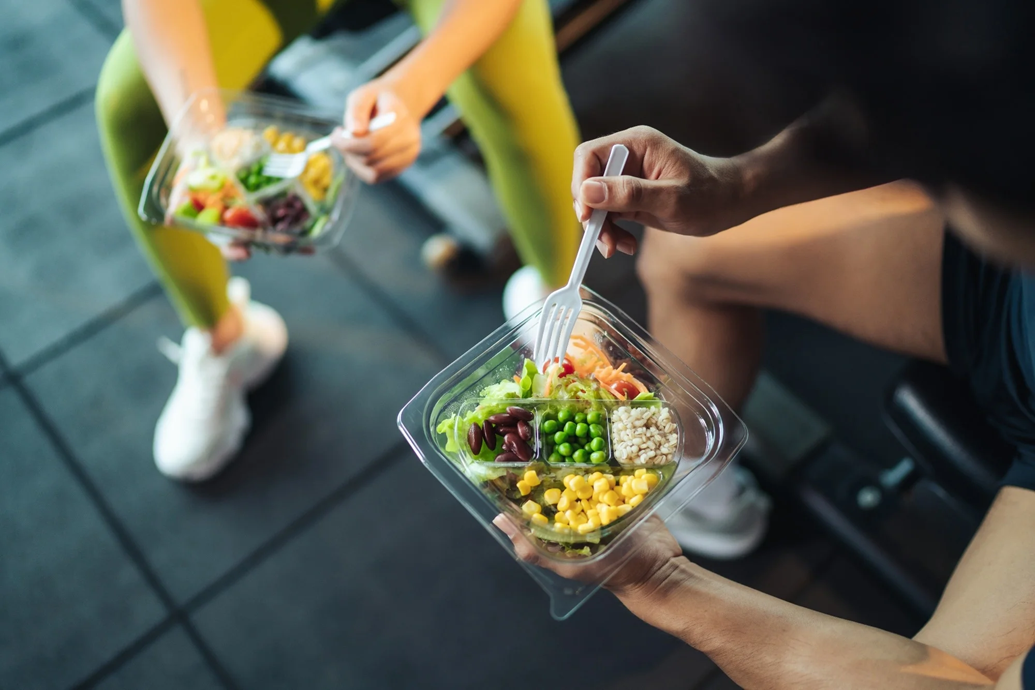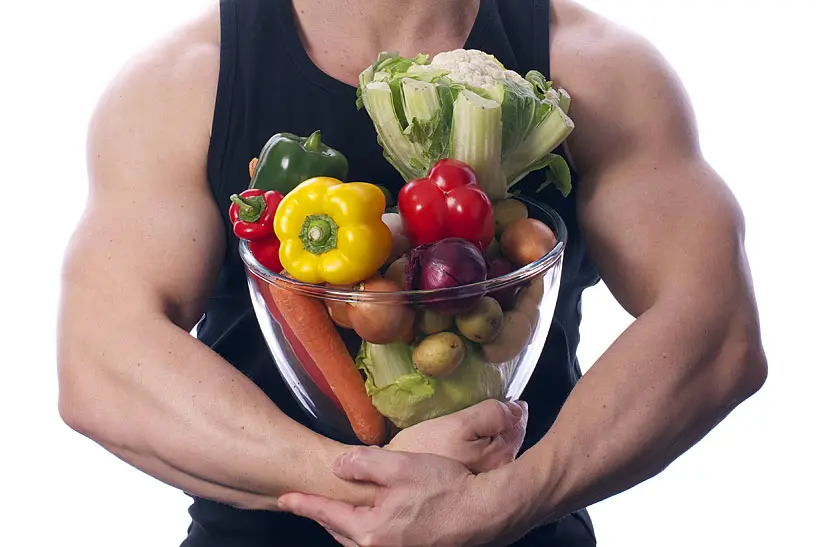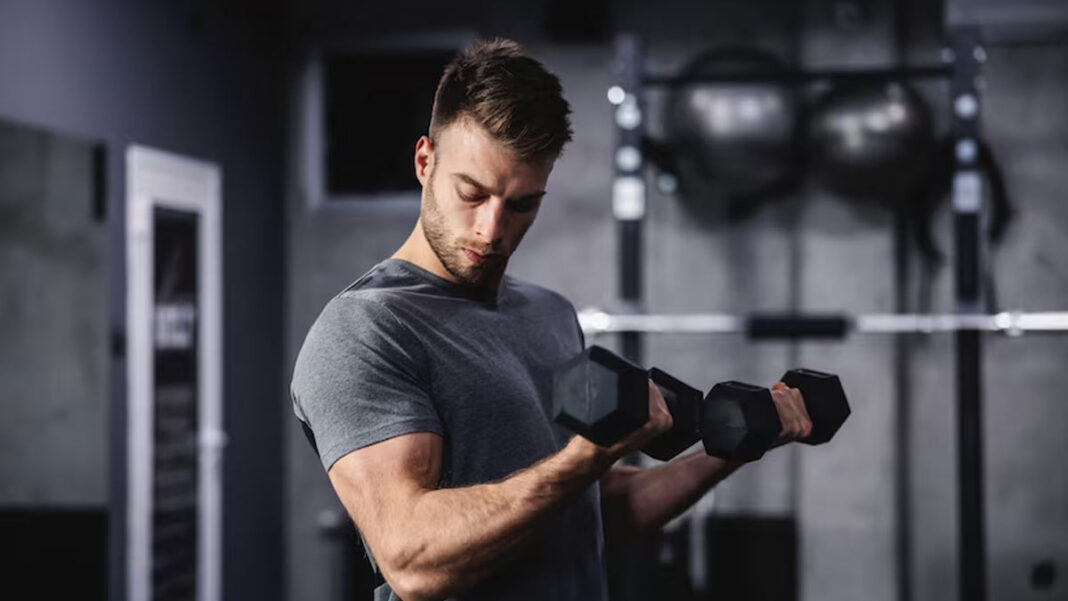Vegan Bodybuilding: Nutrition
Building muscle on a vegan diet is entirely possible with the right approach to nutrition. While traditional bodybuilding diets rely on animal-based proteins, a well-planned vegan meal plan can provide all the necessary macronutrients and essential vitamins for muscle growth.
We explore the best vegan foods for bodybuilding, an effective meal plan, and strategies for achieving a high protein intake while ensuring optimal health.
Key Nutritional Considerations for Vegan Bodybuilders
Vegan bodybuilders must pay close attention to their macronutrient distribution and micronutrient intake to support muscle growth and recovery. The key components of a successful vegan bodybuilding diet include:
Protein: Essential for muscle repair and growth. Plant-based protein sources should be combined to ensure a complete amino acid profile.
Carbohydrates: Provide the energy needed for workouts and recovery. Whole food sources like quinoa, oats, and legumes are ideal.
Fats: Necessary for hormone production and overall health. Healthy fats from nuts, seeds, avocados, and olive oil should be incorporated.
Vitamins and Minerals: B12, iron, omega-3s, calcium, and zinc are essential for muscle function and overall health. These must be obtained from plant-based sources or supplements where necessary.
What is the Most Common Deficiency in Vegans?
One of the most common deficiencies among vegans is Vitamin B12 deficiency. Since B12 is naturally found only in animal products, vegans must rely on fortified foods or supplements to meet their needs.
Other common deficiencies include iron, omega-3 fatty acids, calcium, zinc, and vitamin D. Proper meal planning and supplementation can help prevent these deficiencies and ensure optimal health.
How to Get 140g of Protein on a Vegan Diet
Achieving 140g of protein per day on a vegan diet requires strategic food choices and meal planning. A combination of high-protein plant foods and supplementation can help meet this goal. Below are effective sources of plant-based protein:
- Legumes and Beans: Lentils (18g per cup), chickpeas (15g per cup), black beans (15g per cup), and edamame (17g per cup)
- Soy Products: Tofu (20g per block), tempeh (30g per cup), soy milk (8g per cup)
- Grains: Quinoa (8g per cup), oats (11g per cup), whole wheat bread (5g per slice)
- Nuts and Seeds: Almonds (6g per ounce), chia seeds (5g per ounce), hemp seeds (10g per ounce), flaxseeds (6g per ounce)
- Plant-Based Protein Powders: Pea protein (20-25g per scoop), rice protein (15-20g per scoop), hemp protein (10-15g per scoop)
What is the Biggest Source of Protein for Vegans?
The biggest sources of protein for vegans are legumes, soy-based products, and plant-based protein powders. Tempeh, for example, contains about 30g of protein per cup, making it one of the highest plant-based protein sources.
Other significant sources include tofu, seitan (which can have up to 75g per 100g serving), and pea protein powder, which provides a concentrated source of protein ideal for muscle building.
A sample day of eating for a vegan bodybuilder aiming for 140g of protein may look like this:
Vegan Muscle-Building Meal Plan (140g Protein)
Breakfast:
- 1 cup oatmeal with 2 tbsp peanut butter, 1 tbsp chia seeds, and a scoop of pea protein powder (30g protein)
- 1 banana and soy milk
Snack:
- Smoothie with 1 cup soy milk, 1 scoop pea protein, 1 tbsp hemp seeds, and a handful of spinach (35g protein)
Lunch:
- Quinoa salad with 1 cup quinoa, 1 cup chickpeas, mixed vegetables, and tahini dressing (30g protein)
Snack:
- Whole wheat toast with hummus and a handful of almonds (15g protein)
Dinner:
- Stir-fry with tofu, broccoli, bell peppers, and brown rice (30g protein)
Before Bed Snack:
- Protein shake with almond milk, hemp seeds, and a scoop of plant-based protein powder (20g protein)
What is a Vegan Breakfast?
A nutritious vegan breakfast should be high in protein, fiber, and healthy fats to fuel the day. Some great vegan breakfast options include:
- Oatmeal with nuts and seeds: A protein-packed bowl with almond butter, chia seeds, and hemp seeds.
- Tofu scramble: A high-protein, savory breakfast with vegetables and spices.
- Smoothie bowl: A blend of plant-based protein, fruits, and nuts.
- Vegan pancakes: Made with oats, flaxseeds, and plant-based protein powder.
- Avocado toast on whole grain bread: Topped with hemp seeds and nutritional yeast for added protein.
Which Bread is Vegan?
Most traditional breads made from flour, water, yeast, and salt are vegan. However, some breads contain animal-derived ingredients like milk, eggs, butter, or honey. The best vegan bread options include:
- Whole wheat bread
- Sourdough bread
- Rye bread
- Pita bread
- Ezekiel bread (made from sprouted grains)
Always check ingredient labels to ensure the bread does not contain non-vegan additives like dairy, eggs, or honey.
How Vegans Get Vitamin B12
Vitamin B12 is crucial for red blood cell formation, neurological function, and energy metabolism. Since B12 is primarily found in animal products, vegans must obtain it through fortified foods or supplementation.
Sources of B12 for Vegans:
- Fortified Foods: Nutritional yeast, plant-based milks, breakfast cereals, and tofu are often fortified with B12.
- B12 Supplements: The most reliable way for vegans to get sufficient B12 is through supplements, ideally in the form of cyanocobalamin or methylcobalamin, taken in doses of at least 250 mcg per day.
Vegan bodybuilding requires careful meal planning, but it is entirely achievable with a balanced diet.
Prioritizing high-protein plant-based foods, consuming sufficient calories, and supplementing essential nutrients like B12 ensures optimal muscle growth and overall health.
By following a well-structured vegan meal plan, bodybuilders can successfully build and maintain muscle while following a plant-based lifestyle.





